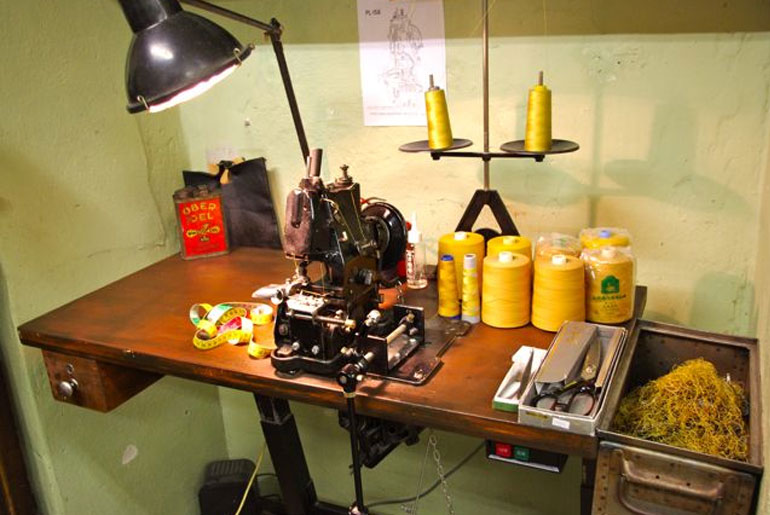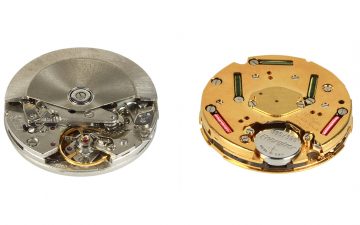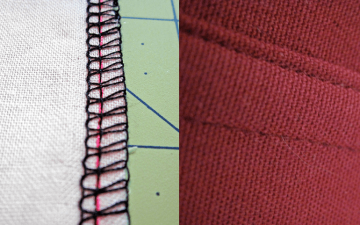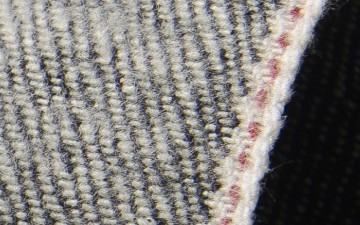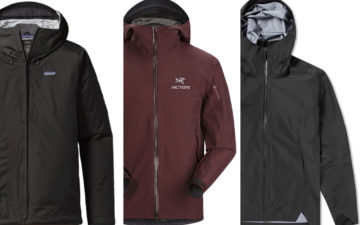Thread is not only essential to holding your jeans together, it can also be accented for contrast, an additional detail in a pair of jeans, or a can be used for a companies signature arcs. While there are many types of thread in today’s garment world, there are a few types that stand out for denim production. The chain stitching station at Berlin’s DC4 (see above) has dozens of threads on hand to ensure the perfect match for the jeans they hem.
But each material ignites the age old battle of authenticity vs. modern era durability. For this article we’ll be looking at a few different types of thread: 100% Cotton, 100% Polyester, and Polyester Core/Cotton Wrap. Read on as we dive into the history, pros, and cons of each.
100% Cotton Thread
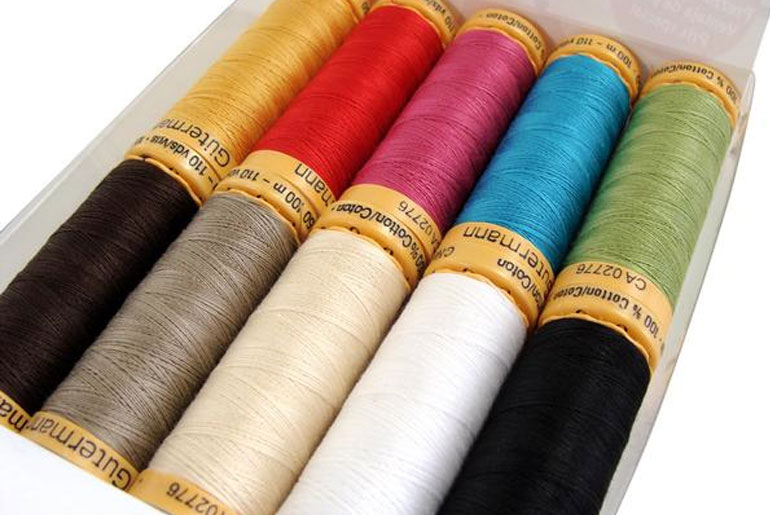
Cotton thread has been used practically since the dawn of human history. Traces of cotton thread have been dated back to 7000 years ago, but it wasn’t until the year 1730 when cotton thread was first spun by machines. From then on, it has been a staple of garment construction.
Thanks to the the natural fibers, cotton thread has excellent sewabllity with little kinking or skip stitching and it’s rarely affected by hot needles (a common element of high-speed sewing machines) so the cotton will not melt and will even sew well on poorly adjusted machines. Also, cotton thread only increases in strength when wet.
Most 100% cotton thread will go through a Mercerizing process, where thread is treated under tension in a solution of caustic soda, which makes the cotton fibers more uniform. This process causes the fibers to swell resulting in the thread to accept dyes more readily. This process also enhances luster, and increases the thread’s strength and tenacity.
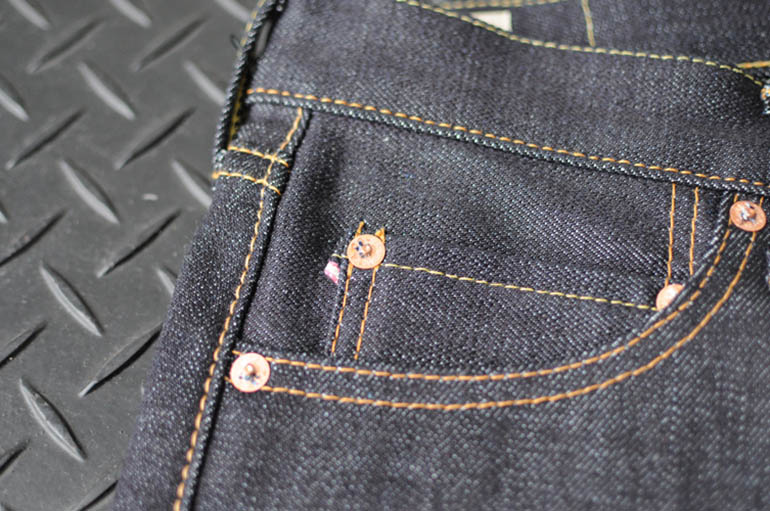
Momotaro 0305-18 with 100% Cotton Stitching
While cotton thread has been around for a while, it does have it’s drawbacks. Natural fibers are generally not as uniform as synthetic, and can be affected by the elements–although cotton thread will become stronger when wet, it can also shrink and mildew. Compared to Polyester or Poly/Cotton threads, their strength and resistance to abrasion is inferior. It has little “give” or elasticity and can break easily if used on a seam with a lot of stress.
Companies such as Momotaro, Red Cloud, and The Real McCoy’s have used cotton thread, because of it’s heritage and authenticity. While cotton thread may not be the strongest or most durable, there is something to be said about the history behind it.
100% Polyester Thread
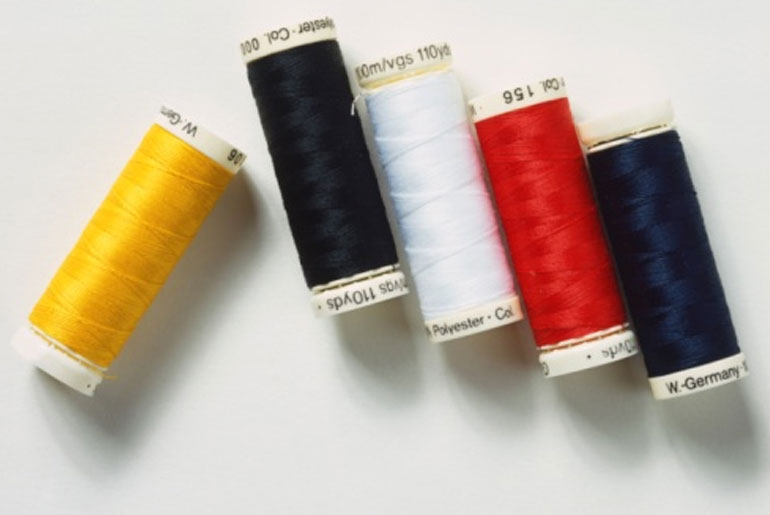
Polyester fibers were invented by British chemists J. R. Whinfield and J.T. Dickson in 1941 but the actual licensed production of Polyester threads wasn’t until 1955. These synthetic threads have a few superior properties over a natural cotton thread.
The production process is obviously much more complicated than spinning a natural fiber. Polyester petroleum byproduct that comes from xylene, a hydrocarbon compound that’s generated during the cracking process of crude oil. Nitric acid and glycol are added to modify the xylene, the fluid is heated and condensed in an autoclave, and the molecules align to form long molecules called polyester. The polyester is then extruded, cooled, then cut into chips to later be spun into filaments.
Up to 170,000 filaments band together to create what’s called a “tow”. This Tow is then stretched and spun until the fibers have been stretched up to 10-20 times their original length. Voila–polyester thread!
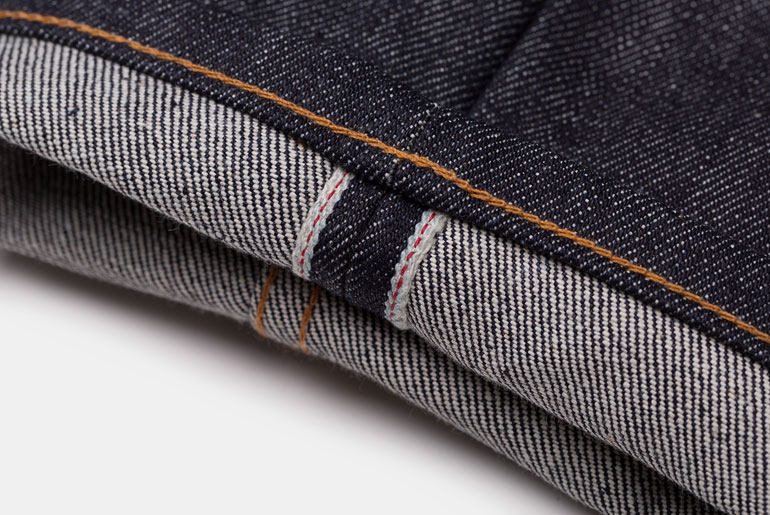
Polyester thread on 3sixteen’s 130x jeans
Due to the spinning process of the polyester, the thread has a much higher strength and greater elasticity than it’s natural counterparts. This makes polyester thread a better use for stretch knit fabrics. The thread also is more resistant to abrasion, mildew, and sunlight than cotton. The downside however, is that polyester thread is generally thicker, kinks more easily, and will melt at high temperatures. Brands such as 3sixteen and Dyer & Jenkins have used 100% polyester threads in their jeans for the greatest durability.
Polyester Core, Cotton Wrap Thread
While polyester thread has become more and more popular for it’s toughness, many have started using a thread that keeps the authentic look and feel of cotton, while maintaining the strength of polyester–the hybrid polyester core, cotton wrapped thread!
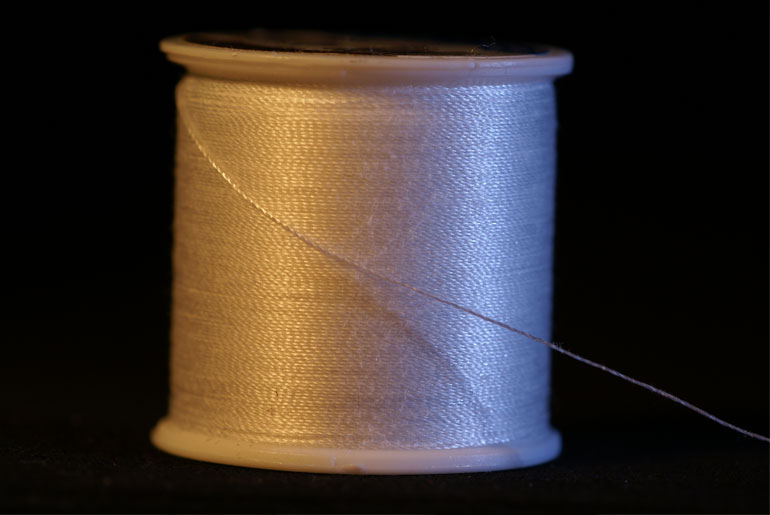
This thread is made up of a 100% polyester core filament, wrapped in a 100% cotton staple wrapper. With the combination of both cotton and polyester, you get the best of both worlds. The cotton wrap gives the thread the sewability, authentic look and feel, and heat resistance you would get with 100% cotton. While the polyester core gives the thread durability, stretch, and resistance to abrasion of a 100% polyester thread.
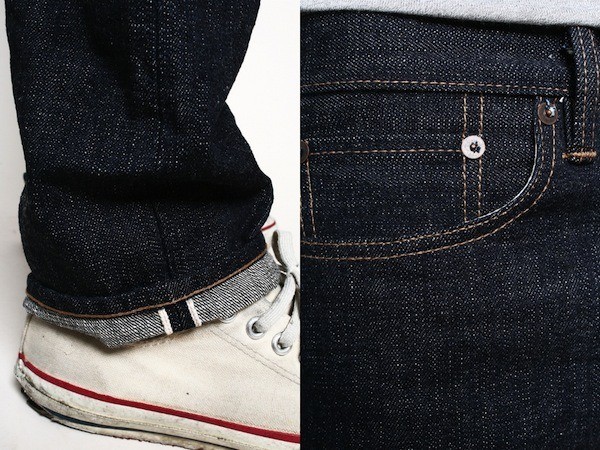
Rogue Territory Stanton 12.5oz Tinted Weft with Polyester Core, Cotton Wrap thread
Polyester/cotton thread has become increasingly more popular among jean production. Companies such as Rogue Territory and Iron Heart are using polycotton thread for it’s authentic look, feel and aging properties, while still keeping the structural durability with the polyester core.
Want to know what type of threads your jeans are made of? Simply take a lighter to a loose thread, cotton will burn away to ash while polyester melts down to a plasticky nub. Just try not to light the rest of your pants on fire in the process!
